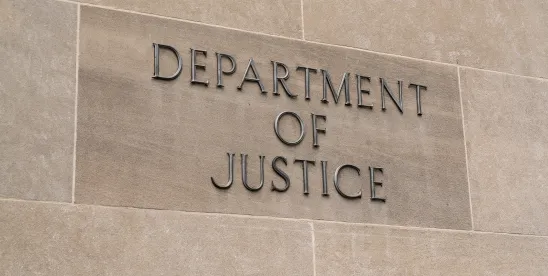At the end of May, the Department of Justice (DOJ) announced the formation of a Civil Rights Fraud Initiative to “utilize the False Claims Act to investigate and, as appropriate, pursue claims against any recipient of federal funds that knowingly violates federal civil rights laws.” In connection with the Initiative, we will see DOJ’s False Claims Act practitioners in the Civil Division and the U.S. Attorneys’ Offices pairing with DOJ’s Civil Rights Division to “identify and root out instances in which recipients of federal funds fail to uphold their basic obligations under federal civil rights laws.”
In particular, the Initiative will focus on companies or institutions that have, in DOJ’s view, tolerated antisemitism or engaged in “divisive” Diversity, Equity, and Inclusion (DEI) policies and efforts.
The new initiative
In some ways, this is a significant development and departure from prior DOJ practice:
The Civil Division (and its U.S. Attorney’s Office partners) and the Civil Rights Division have not done significant work together before. Although this is not the first time DOJ has formed an initiative to target its use of the FCA, this Initiative stretches the FCA into new realms. It relates directly to Executive Order 14173, which was issued on the first day of the current administration. While federal contracts already require compliance with anti-discrimination laws, the Executive Order requires recipients of federal funds to certify that they do not operate or maintain any DEI programs that violate applicable federal anti-discrimination laws. It also directs federal agencies to include terms in every federal contract or grant award that require government contractors to agree that compliance with applicable federal anti-discrimination laws is material to the government’s payment decisions.
Healthcare providers and payors are undoubtedly familiar with FCA challenges related to billing for services performed under certain federal programs. Now, under this Initiative providers and payors may face federal scrutiny not for the specific services performed or the payment received for such services or payments, but for internal HR policies and procedures.
The Initiative’s direct and pronounced call for whistleblowers, particular on a politically sensitive issue, is likely to lead to an increase in qui tam suits, potentially extending beyond healthcare providers and defense contractors to include non-traditional FCA defendants that receive federal funds.
At the same time, much remains unchanged:
The fraud in all FCA cases must still meet the “demanding” [i] test of being material to the government’s decision – meaning the alleged falsehood must have had some impact on the government’s choice to give funds to the defendant. Notwithstanding the language now required to be included within the contract itself, the government still must show that it would refuse payment based on the alleged violation, by making the showing that internal HR practices at a hospital or Medicaid managed care entity, for instance, are material to the provision of or payment for health care services that entity provides. In a concurring opinion a few weeks ago, Justice Thomas argued that exact point: “the contracts in this case were for bridge repairs, not minority hiring.”[ii]
Moreover, liability under the FCA still requires something knowingly “false” in the defendant’s conduct. The Supreme Court previously affirmed that an “honest mistake” is not a knowingly false claim.[iii] Instead, the government must show that the person submitting the claim subjectively believed and knew the claim to be false. Under the Initiative, therefore, the government must show both that: (1) the internal HR policies or DEI initiatives of a health care provider or payor (or other defendant) violated federal anti-discrimination laws; and (2) the healthcare provider or payor knew that those policies and initiatives were in violation of federal law.
What government-sponsored healthcare providers and payors need to know
Any recipient of federal funds is a potential target for an investigation or a qui tam lawsuit. In addition to the government’s own efforts, the traditional FCA bar is likely to heed DOJ’s call to action to find relators.
All providers and payors who receive federal funds, both large and small, should review their workplace policies and procedures for compliance with established law. This includes considering the potential risk that these policies and procedures may be evaluated based on the executive branch’s current interpretation of federal anti-discrimination requirements.
An FCA investigation is a serious matter. The FCA carries significant penalties and has a long statute of limitations, creating the possibility of staggeringly large liability. The government is aided in its search for fraud by incentives to whistleblowers (called relators) to file their own lawsuits on the government’s behalf. Even an investigation that concludes without any adverse findings or actions can be significant. The government can subpoena documents and depose employees, and the process can take months if not years. If you receive a Civil Investigative Demand, a phone call from DOJ, or informal outreach from any government entities, it is important to consider consulting legal counsel.
Footnotes
[i] Universal Health Servs., Inc. v. United States ex rel. Escobar, 579 U.S. 176, 194 (2016).
[ii] Kousisis v. United States, 605 U.S. —, 145 S.Ct. 1382, 1401-02 (2025) (Thomas, J., concurring).
[iii] United States ex rel. Schutte v. Supervalu Inc., 598 U.S. 739, 752-53 (2023).




 />i
/>i

